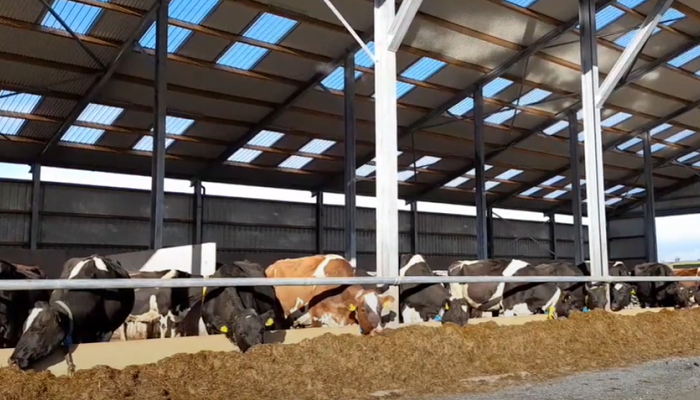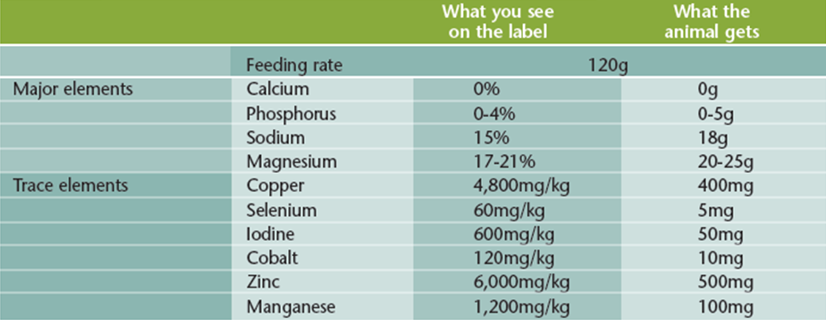03 January 2022
Mineral supplementation for dry cows

Inadequate mineral supplementation during the dry period can cause problems with new-born calf health, as well as a greater risk of problems with cow health. James Dunne, Teagasc Dairy Specialist has recommendations and details on pre-calving mineral requirements here
Cow health problems from inadequate mineral supplementation include:
- clinical and subclinical milk fever
- ketosis
- retained cleanings
- low dry matter intake
- displaced abomasum and
- fertility problems
Pre-calving minerals should be fed to dry cows for six weeks pre calving. The correct feeding level should be offered. Typically, mineral specifications are formulated to a 120g/cow/day feeding rate. If dusting minerals on silage, it is preferable to offer minerals twice daily (60g/cow in two feeds) to try to ensure that intake is controlled and that all cows can have access to minerals. This is especially important where feed space is limited.
Magnesium (Mg) is the key mineral for the prevention of (sub) clinical milk fever. The cow requires about 20 – 25g/cow/day (17% – 21% Mg in the mix for a 120g feeding rate). Trace minerals and vitamins (copper, selenium, zinc, etc.) should be fed from at least six weeks pre-calving to achieve adequate levels for the calving period. Ensure enough vitamin D (>120,000 units per kg) is included in the mineral supplement to help prevent milk fever. The table below outlines the daily mineral and trace element requirements of your typical dairy cow pre-calving. These figures are at a typical feeding rate of 120 grams per head per day. Remember feeding rates can vary from manufacturer to the next.
Please read the label and feed the recommended rate.
Table 1: Pre-calver mineral requirements.

If there is a history of health issues such as milk fever at calving, test the mineral content of the forage now. High potassium (K) silage can often be the cause of the problem. Target to feed a low-K silage (<2%) from four weeks pre-calving.
Finally, while pre-calving minerals are necessary to avoid the problems listed above, it is equally important that cows are in the correct body condition score at both drying-off and, most importantly, calving.
Finally always remember to check that the:
- mineral spec meets the herds requirements
- feeding rate is correct
- minerals are fed twice daily
The Teagasc Dairy Specialists issue an article on a topic of interest to dairy farmers every Monday here on Teagasc Daily. Find more on Teagasc Dairy here
